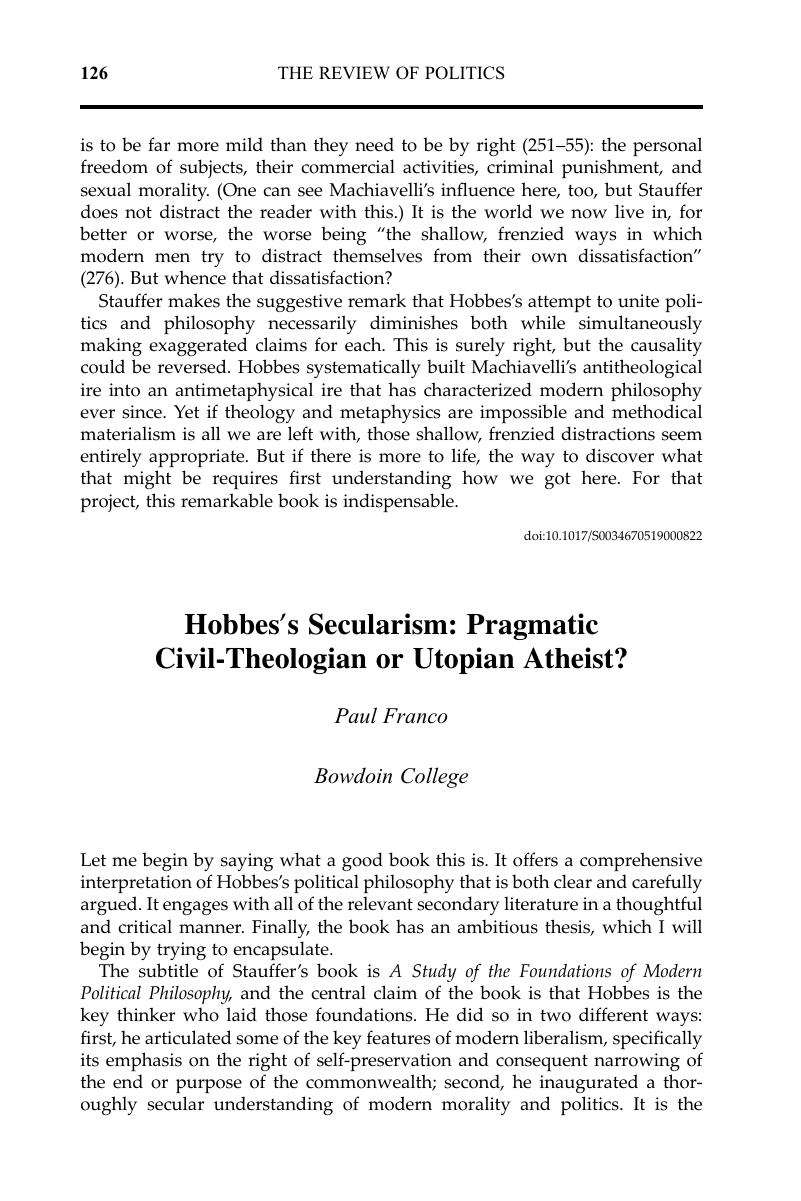No CrossRef data available.
Published online by Cambridge University Press: 20 December 2019

1 See, e.g., Strauss, Leo, The Political Philosophy of Hobbes: Its Basis and Its Genesis, trans. Sinclair, Elsa M. (Chicago: University of Chicago Press, 1952), 71Google Scholar, where Strauss attributes a double intention to Hobbes's biblical interpretations: first, “to make use of the authority of the Scriptures for his own theory;” and second, “to shake the authority of the Scriptures themselves. Only gradually does the second intention become predominant”. See also Strauss's unfinished 1933–34 manuscript “Hobbes's Critique of Religion: A Contribution to Understanding the Enlightenment,” in Hobbes's Critique of Religion and Related Writings, trans. and ed. Gabriel Bartlett and Svetozar Minkov (Chicago: University of Chicago Press, 2011), esp. 23–30; Natural Right and History (Chicago: University of Chicago Press, 1953), 198–99; and “On the Basis of Hobbes's Political Philosophy,” in What Is Political Philosophy? and Other Studies (Chicago: University of Chicago Press, 1959), 182–89. Other scholars who have followed Strauss's lead include Pangle, Thomas, “A Critique of Hobbes's Critique of Biblical and Natural Religion in Leviathan”, Jewish Political Studies Review 4, no. 2 (1992): 25–57Google Scholar; and Curley, Edwin, “‘I Durst not Write So Boldly,’ or How to Read Hobbes’ Theological-Political Treatise”, in Hobbes e Spinoza, Scienza e Politica, ed. Bostrenghi, Daniela (Naples: Bibliopolis, 1992)Google Scholar.
2 Scholars who defend this more Erastian, not to say more conventional, interpretation include Oakeshott, Michael, Hobbes on Civil Association (Indianapolis, IN: Liberty Fund, 1975), 73–76Google Scholar; Tuck, Richard, “The Civil Religion of Thomas Hobbes”, in Political Discourse in Early Modern Britain, ed. Phillipson, Nicholas and Skinner, Quentin (Cambridge: Cambridge University Press, 1993)Google Scholar; and most recently Collins, Jeffrey, The Allegiance of Thomas Hobbes (Oxford: Oxford University Press, 2005)Google Scholar.